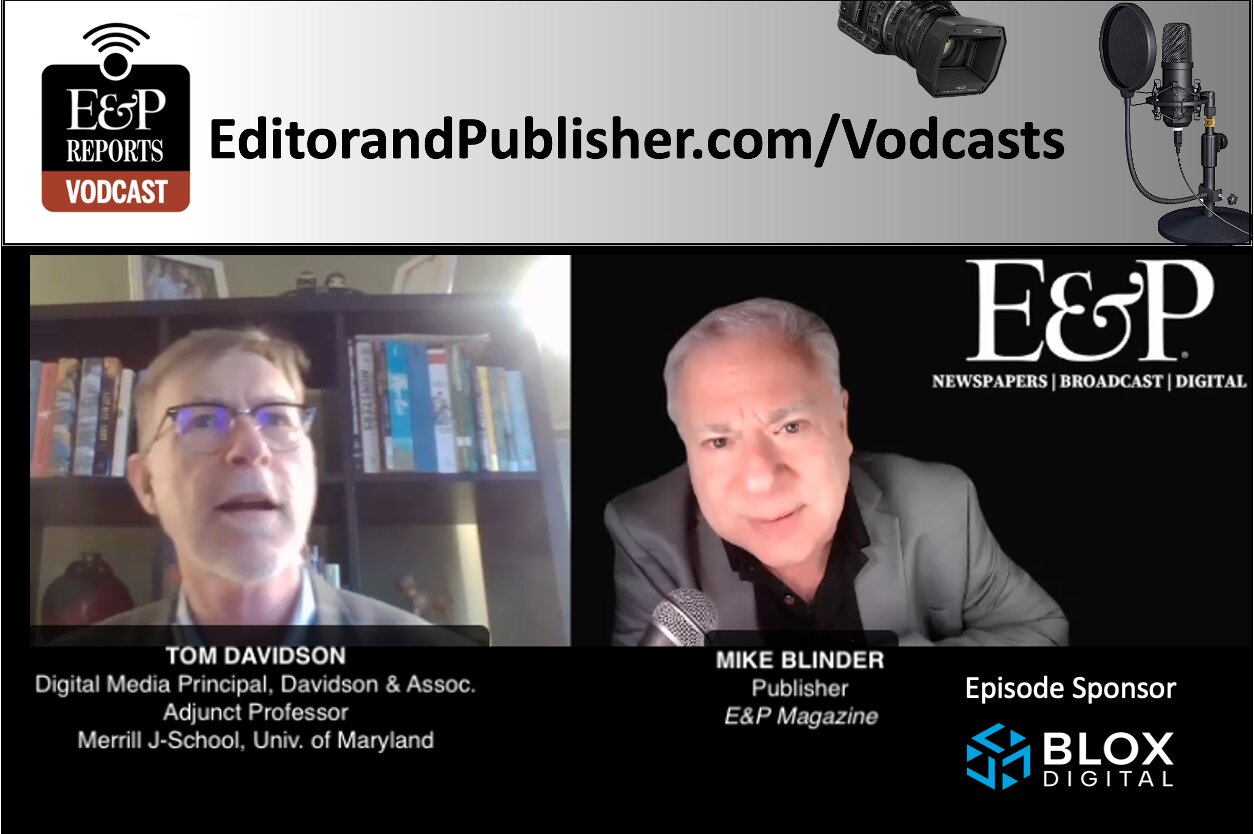As the Press Forward initiative gathers momentum, I’m hearing a question from the heads of public broadcasting and nonprofit news organizations alike: “Do you know where I can find a grant writer?”
My answer to them: “You don't need one.”
Most of these folks think they need a gifted writer who can research lists of available grant programs, spin a compelling narrative about their organization’s worthiness, blast out dozens of unsolicited applications and cause dollar bills to magically rain down from the sky.
Foundation fundraising doesn’t work like that — especially Press Forward.
They’ve clearly and consistently explained what they want to see: fostering democracy with digital products that serve diverse communities, building demand for news rather than simply publishing at people and developing new sources of local funding.
Or, as one of its leaders privately says, “Don't say, ‘Don't forget about me!’ Tell me what you want me to remember — what's your idea?”
At a time when radio audiences are declining across the board (thanks, Spotify) and digital users have virtually unlimited choices, foundation funding is one of the few revenue streams public broadcasters can hope to grow.
But to do that, we must remember why foundations give money for anything: They want to fix a problem affecting their community. They want to change the world for the better.
So, flowery language about how wonderful your organization is? It's meaningless to them.
They care about the problem they want to solve. And if you’re pitching them for money, it's your job to show them how you can help them (not the other way around).
And no matter how gifted a grant writer you find, an application coming in over the transom will likely fail. The best foundation pitches boil down to the following.

Access this recent E&P Vodcast interview with Tom Davidson
People
Foundation program officers are human beings who decide where to invest their funds. Just as reporters build relationships with sources over time, nonprofit organizations need to build relationships with program officers.
So, do your research. What organizations do your target foundations fund today? How has that changed over the past couple of years? Just as you’d cultivate a source, take them out for coffee. What past grants are they particularly proud of? Which didn’t work out?
Build a relationship around conversations that don’t end with “Can you give me money RIGHT NOW?”
Projects
Once you understand a target foundation’s focus, giving patterns and challenges, it’s time to craft a pitch. Much as you might want general unrestricted support (hey, it’s great when you can get it), recognize that most foundations want to fund specific projects that help achieve their goals. (Your goals are secondary.) That entails showing how your journalism and community engagement can highlight the problems the foundation is trying to solve.
Build a pitch around that specific idea. For example: “We’ll hire a new reporter to cover this topic in great depth, and we’ll convene this many community events to bring more attention to the problem and potential solutions.”
Resist the temptation to create a laundry list of things you might do. Pick the best ideas and focus. As one foundation officer reminded me recently, “I want one of those prix fixe deals — not a menu.”
Persistence
Finally, keep at it. Your initial pitch might fall flat. You might get feedback like, “Hey, we like pieces one and three, but not two.” Or you might hear, “We love it, but this year’s budget is already spent. Pitch us in the fall for next year!” Foundation fundraising can be a long haul, so be patient and persistent.
Prepared.
You never know when an opportunity will fall in your lap. At PBS one day, our internal foundation fundraiser popped downstairs with an odd question: “We just got a call from *Well Known Foundation*. They’ve got some excess money they have to spend by the end of their fiscal year in six weeks. Got an idea we can pitch them for around $50,000 right now?”
Why, yes. By happenstance, my colleague, Matt Graham, had a project vetted and ready. It just lacked a bit of seed capital, which *Well Known Foundation* happily provided because it fit their mission and hit their deadline. Ever since, I’ve kept a shovel-ready idea at hand.
Don’t get me wrong. As your organization grows, you should add a development pro. Great fundraisers know how to research the foundations whose giving matches your work and are skilled at building relationships with program officers.
But if you're the leader of a nonprofit news organization, understand that you are your organization's best fundraiser. No one else has the passion, deep knowledge about the impact of your work or the ability to make an on-the-spot decision about how to tweak a proposal to satisfy a potential giver.
That magical grant writer you want to find? They’re in the mirror.
Tom Davidson is a consultant for public and nonprofit media organizations, and an adjunct lecturer in media entrepreneurship and nonprofit news management at the University of Maryland. He can be reached at tgd@tgdavidson.com.
Comments
No comments on this item Please log in to comment by clicking here